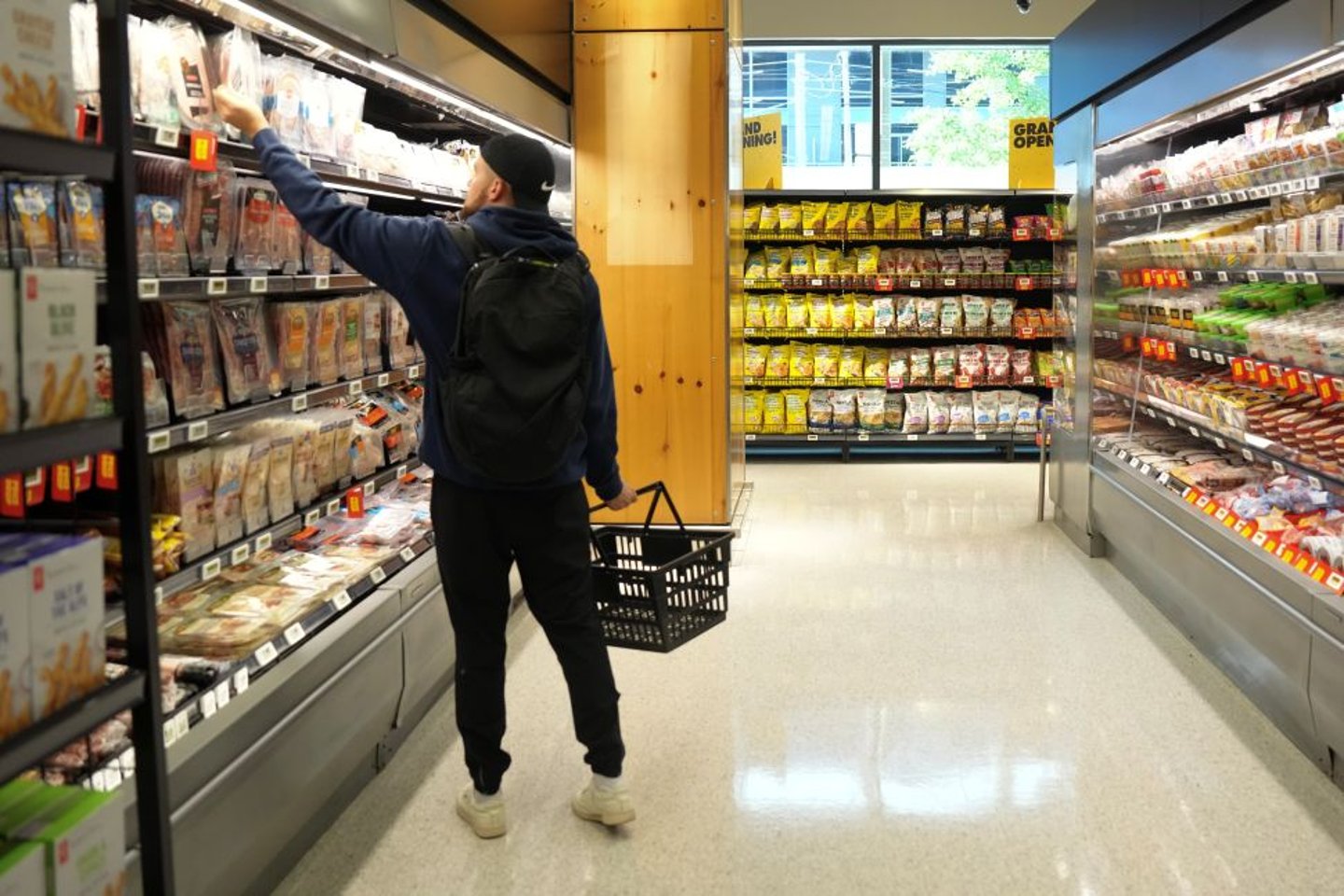Loblaw says grocery price growth to remain elevated in its own inflation report
Loblaw says a confluence of factors including a weak loonie mean grocery prices will continue to rise faster than overall inflation.
Canada's largest grocer released a report on food inflation the evening before Statistics Canada's scheduled monthly Consumer Price Index report.
Loblaw says many suppliers are still proposing price increases above inflation, while supply chain issues, a weaker dollar and rising production costs are also making food more expensive.
Canada's major grocers have been under intense scrutiny from politicians and consumers in the wake of a bout of inflation that saw grocery prices go up more than 20% over three years. The grocers have denied accusations of profiting from inflation, saying they face unreasonable requests from suppliers and have been doing their part to mitigate rising prices.
In November, overall inflation declined to 1.9% while grocery prices outpaced the headline number at 2.6%. In March 2023, the government brought executives from the major grocers to Parliament Hill to answer questions about how their profits squared with ballooning grocery costs.
Loblaw's report highlights several commodities that have seen particularly sharp price increases, including coffee and cocoa, which have seen their crops hit by poor weather. The grocer says the cost of beef has also climbed to all-time highs, while olive oil prices should ease somewhat after recent shortages.
Since Canada imports much of its fresh produce from the U.S., especially during the winter, a weaker loonie makes those products more expensive, Loblaw said in its report.
"While food inflation has returned to more typical levels, grocery prices are still rising faster than overall inflation — a trend we expect to continue."
READ: Loblaw Companies reports Q3 profit up from year ago, revenue also higher
Inflation ticks lower to 1.8% in December, thanks in part to GST tax break
Today, Canada’s annual inflation rate fell to 1.8% in December, thanks in large part to the federal government’s temporary tax break.
Statistics Canada’s consumer price index report on Tuesday said restaurant food purchases, and alcohol bought from stores contributed the most to the deceleration.
The federal government introduced a temporary pause on taxes to those items in mid-December, along with tobacco and cannabis products, clothing, and some toys, among others. Without the tax break, Statistics Canada said the annual inflation rate would have risen to 2.3%.
Growth in grocery prices also decelerated from the prior month, falling to 1.9% year-over-year, from 2.6% in November. Gas price inflation remained elevated at 3.5% year-over-year.
Shelter costs ticked down slightly in December to 4.5% t, though remain elevated, while rent prices were also down year-over-year in December, falling to 7.1%.
Attention now turns to the Bank of Canada, which is set to make an interest rate decision next week.
Some economists have called for another quarter-percentage point rate cut, following a half-point cut in December.
"We suspect that today's reading is just good enough to allow the Bank of Canada to trim next week, for risk management purposes," said BMO Capital Markets chief economist Doug Porter in a note to clients.
TD Economics also reiterated its expectation of a quarter-percentage point cut at "every other (rate) decision in 2025."
With files from Nick Murray. The Canadian Press





